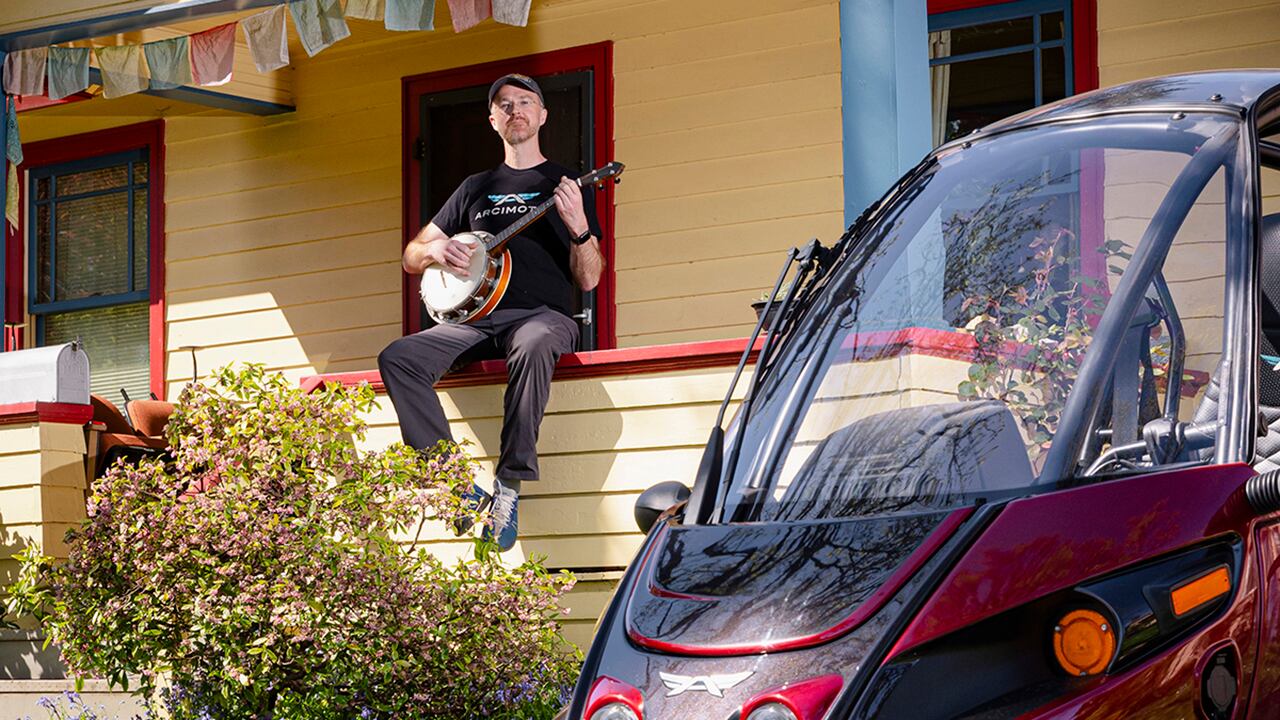After Mark Frohnmayer gets Arcimoto up and running, he's going to turn to his real mission: fixing America's broken voting system.
That's according to Clay Shentrup, co-inventor with Frohnmayer of STAR voting, a system that uses complex game theory to make sure candidates who best represent the most voters are elected.
"He's going to go all in on voting," Shentrup says. "That is going to be his thing."
Frohnmayer says he's fully committed to Arcimoto, but he admits that voting is his other passion. For six years, he and Shentrup, a software developer in Portland, have argued that the current system fosters extremism and division.
You know the system we have now: Each voter gets one vote, and whoever gets the most votes wins.
That's fine when there are just two candidates. The trouble starts when there are more. Then, two good candidates might take votes from one another, ceding the election to a weaker third.
Given this possibility, voters often end up selecting the candidate they think can win, not the candidate they like most. Sadly, those are often two different people.
Frohnmayer's quest dates back to the moment his father's political ascension ended. In 1990, Oregon Attorney General Dave Frohnmayer, a moderate Republican, ran for governor against Democrat Barbara Roberts. Frohnmayer was favored to win.
Before the election, the Oregon Citizens Alliance, a virulently anti-gay, anti-choice Christian group reached out to Frohnmayer and threatened to hijack the election unless he gave in to their demands.
"They came to my dad and said 'If you don't adopt these policy platforms, and if you don't agree to appoint these people to these positions, then we're going to run a candidate against you and make sure you lose,'" Mark Frohnmayer says.
Dave Frohnmayer refused to play ball.
Sure enough, a right-wing independent named Al Mobley jumped into the race, siphoned votes from Frohnmayer, and tossed the race to Roberts, who won with
just 46% of the vote, a plurality, not a majority. Frohnmayer and Mobley together had 53%.
It says something about Mark Frohnmayer's personality that he looked at this injustice and decided it could be fixed with science.
Voting experts have come up with plenty of fixes, including open primaries, where voters aren't constrained by party affiliation, and ranked-choice voting, where voters select first, second and third—or more—choices.
In ranked-choice voting, a candidate who gets more than 50% of the first-choice votes wins. If no one does, then the other choices come into play. The candidate with the fewest first-choice votes is eliminated, and those votes go to the candidate who placed second on those ballots. The process continues until one candidate has a majority.
STAR voting takes this a step further, with two parts to each race. (STAR stands for "score then automatic runoff.") First, voters give each candidate a rating of 0 to 5 points, or stars. The two candidates with the most stars make it to the second round, an automatic runoff where each ballot counts as one vote, as in traditional elections. To win a ballot's vote, one candidate in the runoff must have a higher star score than the other (say, 5 stars to 2 stars). If there's a tie on a ballot (3 stars to 3 stars), then the voter is deemed to have abstained.
The idea is that no votes are wasted, voters get greater say in electing their leaders, and second-rate candidates don't win just because two other candidates split the vote. And a bonus: The primary and general elections are held at the same time, saving taxpayers money.
Frohnmayer's Equal Vote Coalition is pushing a bill in the Oregon Legislature to implement STAR voting statewide for all elections. Frohnmayer tried to get Lane County to adopt STAR voting in 2018 and fell just short, with 52% of voters saying no.
Cover story: Mark Frohnmayer built a three-wheeled rocket trike. Why is it worth a billion dollars?

